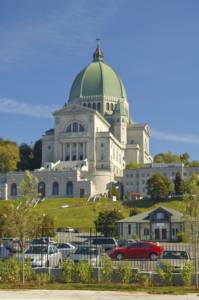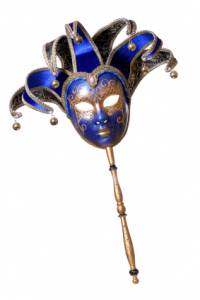Like other nations in the Americas that began as former European colonies, Canada’s history has been largely defined by exploration and conquest, along with the establishment of religious missionaries. The last National Household Survey revealed that Catholics make up 38.7 percent of Canada’s population, a testament to the legacy of Catholicism in our country. Indeed, the Catholic faith has played a large role in shaping its culture and history.
Did It Begin With John Cabot’s Arrival?
Chronicles of America disclosed that Venetian explorer John Cabot, better known to some as Giovanni Caboto, landed in northeastern Canada in 1497. Depending on who you ask, Cabot’s ship landed in either Nova Scotia, Cape Breton Island, Newfoundland, Labrador or even the northeastern part of the United States. In either case, his Biography entry reveals that he claimed the territory for King Henry VII of England. Some sources insist that he also raised banners for his home nation of Venice and for the Pope, but some of Cabot’s story has been lost to history and remains in the domain of speculation today.
Samuel de Champlain and French Catholic Settlement
French navigator and geographer Samuel de Champlain left his own mark on Canadian history as the first to make an accurate map of its eastern coastline. In 1608, he established a Catholic colony that eventually became our modern-day Quebec City. A few years later, he founded a fur trading post and Catholic colony on the Island of Montreal. Known as “the Father of New France,” he spent his time in Canada creating trading opportunities, charting new areas, and furthering relations with Canada’s Indigenous peoples.
The Canadian Encyclopedia explains that several Catholic orders came to Canada later in the 1600s, including Franciscans and Jesuits. While the French Canadian Catholic Church’s focus was first on evangelizing Indigenous peoples, it soon had to turn its attention to the growing population of French settlers. With the establishment of parishes and other institutions, the first diocese was formed in Quebec in 1674, and Catholicism had firmly established itself in the region.
British Impacts on Canadian Catholicism
During the same period in which French Canada was developing as a Catholic territory, British Catholics were creating their own presence in Newfoundland. In 1620, George Calvert established the Avalon colony, in which a Catholic ministry was founded by two priests. As part of Avalon’s first charter, Calvert included the concept of religious tolerance to allow all residents, including Catholics, to practice their faiths freely.
However, British influence would not fully play out until the Seven Years’ War and French Canada’s conquest. The Canadian Encyclopedia mentions the 1763 Treaty of Paris, which converted New France over to British rule. The years that followed proved to be somewhat contentious for both French Canadian Catholics and their new British Protestant neighbors. French Catholics worried about conversion attempts from English Protestants, but the right to openly practice their religion was included in the terms of surrender. These liberties were further secured in the Quebec Act of 1774.
Irish Immigration Adds Further Complexities
Irish Catholics began migrating to Canada in the second half of the 17th century. This would set the stage for the later battle over French-language schools in the nation. Siding with Canadian Protestants, Irish Catholics opposed the use of French in public educational institutions, while French Catholics remained staunchly in favor of it. This heated debate led to legislation such as Ontario’s Regulation 17. As TVO revealed, it was enforced until 1927 and repealed in 1944. Moreover, full public funding to French-language schools was not instituted until 1968.
Catholicism’s Legacy in Canada
From initial settlement, to questions of religious freedom, to a battle between cultures, the history of Catholicism in Canada is a long and complex one. Our nation’s religious makeup, the monuments left behind by earlier settlers and even modern public policies all display evidence of its legacy.




